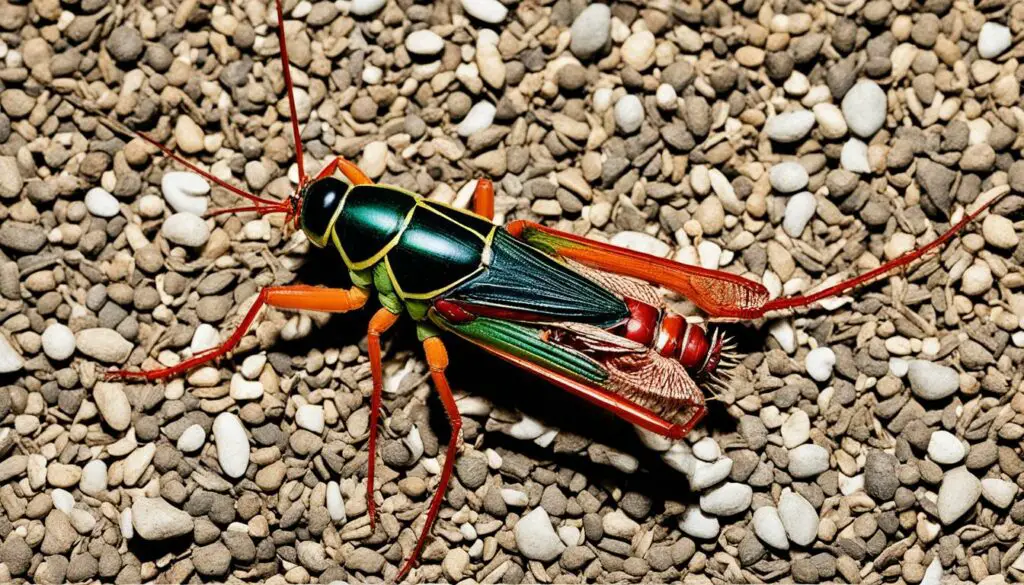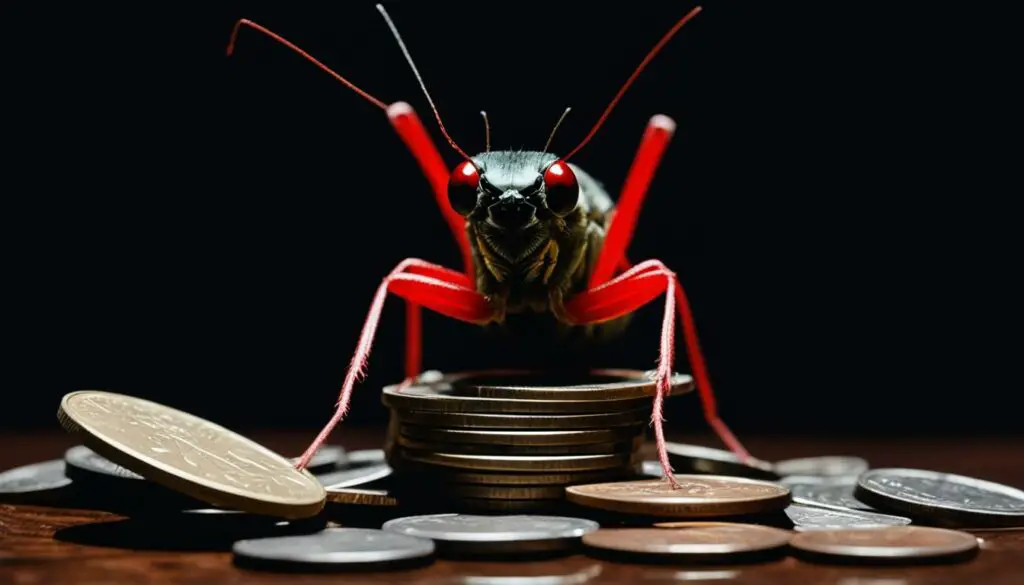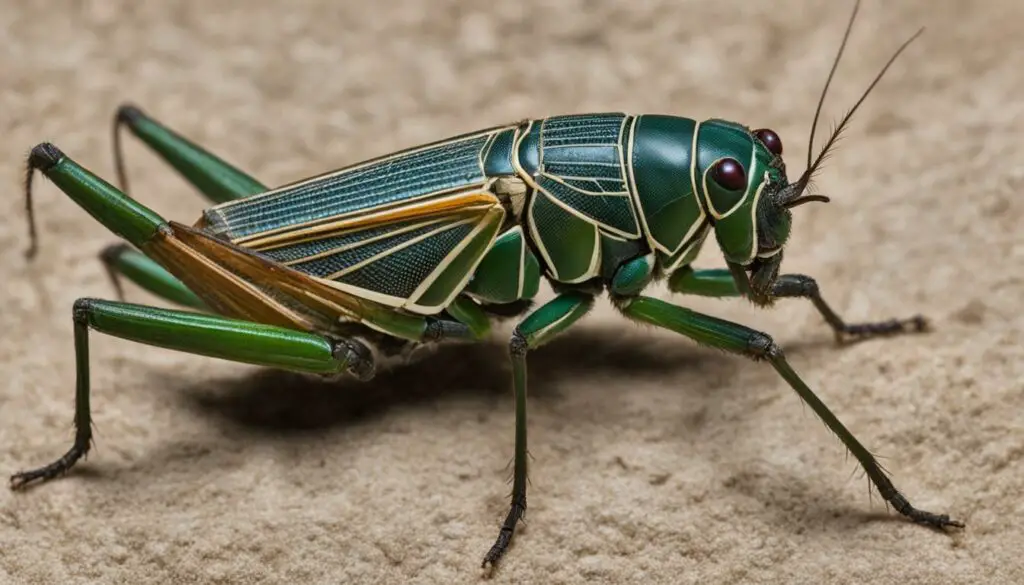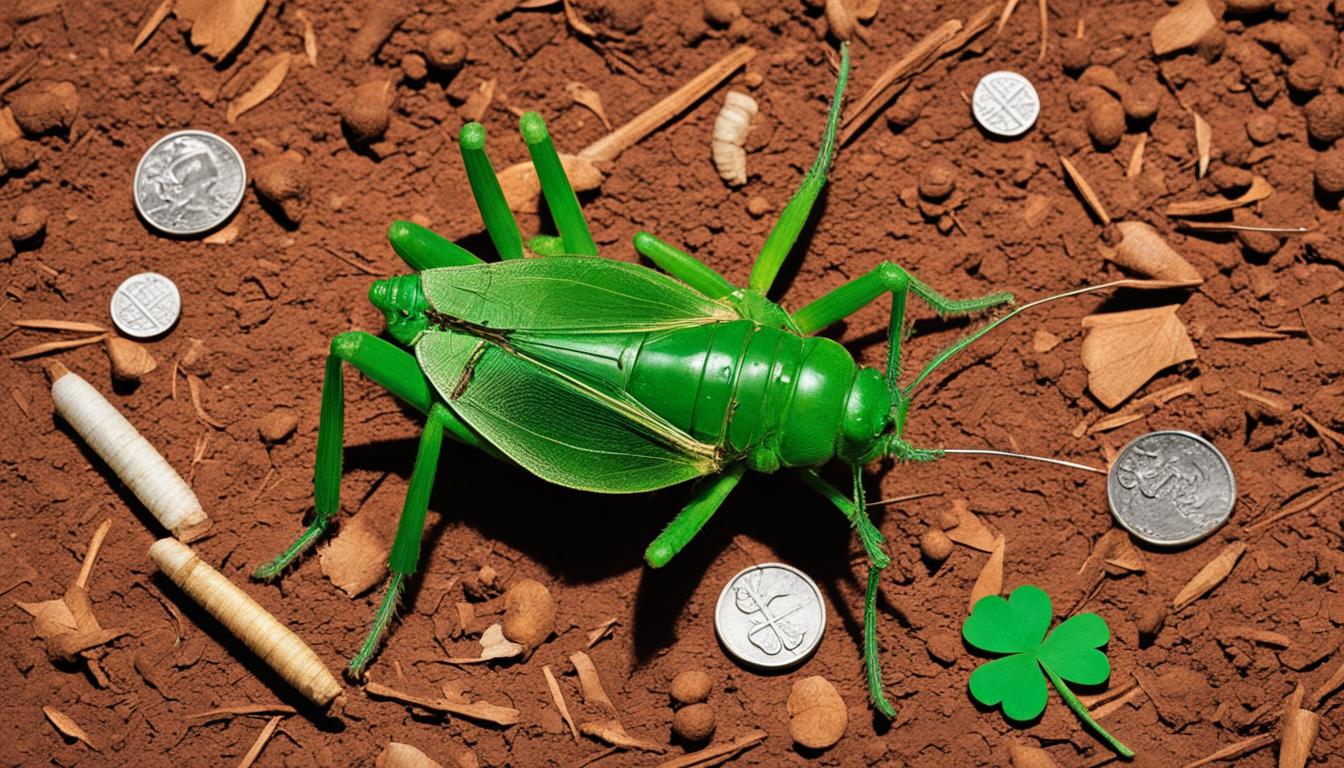Crickets are fascinating creatures that have captivated the imaginations of people worldwide. These small insects are often associated with good luck, fortune, and prosperity in different cultures. However, there is an intriguing belief that killing a cricket can bring bad luck. In this article, we will delve into the origins of this superstition, explore the scientific facts behind it, and unravel the cultural significance of the act.
Key Takeaways:
- Killing a cricket is believed to bring bad luck according to superstitions.
- There is no scientific basis for the belief, but crickets are sensitive creatures that deserve respect.
- Crickets hold cultural significance in various traditions and are often associated with luck and prosperity.
- Understanding and appreciating diverse cultural beliefs promotes tolerance and compassion.
- Killing crickets can have ecological consequences, as they play a crucial role in the ecosystem.
Origins of the belief: Is It Bad Luck to Kill a Cricket?

The belief that killing a cricket can bring bad luck is a superstition deeply ingrained in many cultures worldwide. From China to Japan and even some Native American tribes, this belief spans across continents and generations. Though the true origins of this belief remain unclear, several theories offer possible explanations.
One theory suggests that the belief may have originated from ancient Chinese customs where crickets held significance as a food source or for entertaining cricket fights. In these cultures, crickets were prized creatures and considered a symbol of good luck, happiness, and prosperity.
“In ancient China, crickets were held with reverence, and their chirping was believed to bring success and wealth to the household. Killing a cricket would disrupt this positive energy and invite bad luck,” explains cultural anthropologist Dr. Mei Lin.
Similarly, in Japanese culture, crickets are associated with good fortune and are even believed to act as spiritual protectors. This connection between crickets and positive outcomes may have further contributed to the belief that killing these insects can bring bad luck.
In Native American cultures, while the belief in bad luck associated with killing crickets may not be as prevalent, these insects still hold cultural significance. They are often seen as creatures embodying aspects of nature and are accorded respect and reverence in certain traditions.
Despite the varying interpretations and traditions, the belief that killing a cricket brings bad luck continues to be upheld by many individuals today. This enduring superstition highlights the powerful influence cultural beliefs can have on shaping our perceptions of the natural world.
Scientific Facts of Is It Bad Luck to Kill a Cricket!

Despite the widespread belief in bad luck associated with killing a cricket, there is no scientific basis for it. Crickets are sensitive insects that can easily die from stress, dehydration, and temperature changes. Therefore, killing a cricket may not cause bad luck, but it is still a cruel and unnecessary act.
When it comes to the superstition surrounding the bad luck of killing crickets, there is a lack of scientific evidence. Crickets, like many other insects, have a delicate physiology and are susceptible to various stressors. Stress, dehydration, and extreme temperature changes can all place a significant toll on their health and survival.
In fact, studies have shown that crickets can experience high levels of stress when exposed to unfavorable conditions. This stress can significantly impact their overall well-being and even lead to death. Therefore, it is important to note that killing a cricket does not bring bad luck, but it does inflict unnecessary harm on a living creature.
Killing a cricket for superstitious reasons not only lacks scientific basis but also displays a disregard for the well-being and cruelty towards these fascinating insects. Instead of perpetuating unfounded beliefs, it is essential to promote compassion and respect for all living creatures, including crickets.
While the belief in bad luck associated with killing crickets may be deeply ingrained in certain cultures, it is crucial to approach this superstition with a scientific and ethical perspective. Recognizing that crickets play a vital role in the ecosystem and possess unique adaptations can foster a deeper appreciation for their value and existence.
By understanding the scientific facts behind killing crickets and the cruelty of this act, we can work towards debunking myths and promoting empathy towards all creatures, big and small.
Cultural Significance of Cricket Killing Superstition!

Crickets have long played a prominent role in various aspects of human culture, including art, literature, and folklore. Their significance and symbolism differ across different cultures, shedding light on the cultural diversity surrounding these intriguing insects. Let’s explore how crickets are regarded in different traditions and their role in shaping cultural beliefs.
In China and Japan: Symbols of Good Luck and Prosperity
In both China and Japan, crickets are greatly revered and considered symbols of good luck, happiness, and prosperity. They hold a place of honor and are often seen as auspicious creatures. People in these cultures keep crickets as pets, appreciating their melodious chirping that adds to the peaceful ambiance of their homes. In fact, crickets are even used as entertainment in cricket fighting contests, showcasing their cultural significance and the value placed on these insects.
In Native American Cultures: Creatures of Significance
While the belief in bad luck associated with killing crickets is not widely prevalent in Native American cultures, crickets are still regarded as significant creatures in certain traditions. They are often seen as messengers of important omens or as symbols of intuition and guidance. The presence or behavior of crickets is observed and interpreted as signs related to personal and community well-being.
“Crickets have long been regarded as symbols of good luck, happiness, and prosperity in Chinese and Japanese cultures, while Native American communities hold their own unique beliefs about the significance of these insects.”
These cultural variations highlight the rich tapestry of beliefs and traditions that surround crickets. The cultural significance of these beliefs transcends borders and speaks to the universal human fascination with nature and its symbolism.
Now, let’s delve deeper into the scientific and ecological aspects of crickets in the upcoming sections.
| Cultural Significance of Crickets |
| ——————————- |
| **China and Japan** |
| – Symbols of good luck, happiness, and prosperity. |
| – Kept as pets and used in cricket fighting contests. |
| **Native American Cultures** |
| – Seen as significant creatures in certain traditions. |
| – Considered messengers of important omens. |
The scientific and cultural significance of crickets

Crickets play a vital role in both the scientific and cultural realms, showcasing their immense significance in ecosystems and human societies.
The role of crickets in the ecosystem
Crickets contribute to the delicate balance of ecosystems as an essential food source for various animals. They serve as a nutritious meal for birds, reptiles, amphibians, and even small mammals. Without crickets, the food chain would be disrupted, impacting the survival of many other species.
Furthermore, crickets play a significant role in soil aeration. As they burrow through the ground, they help improve soil structure, facilitating better water infiltration and nutrient distribution. This, in turn, supports the growth of plants and enhances overall ecosystem health.
Additionally, crickets contribute to insect control. They are known to consume a wide range of insects, including agricultural pests, helping to naturally regulate populations and reduce the need for harmful chemical pesticides.
| Ecosystem Contributions of Crickets | |
|---|---|
| Food source for animals | Soil aeration and nutrient distribution |
| Insect control | |
The cultural importance of crickets
Across different cultures, crickets hold significant symbolism and cultural value, representing various qualities and concepts.
In Chinese culture, crickets are considered symbols of luck, prosperity, and wealth. They have been associated with good fortune for centuries, often featured in traditional art, literature, and even embraced as pets for their auspicious presence.
“The cricket’s chirp sings prosperity into our lives, a symbol of abundant blessings and harmonious spirits.” – Traditional Chinese proverb
In Japanese culture, crickets symbolize perseverance, as they are known for their resilience and persistent chirping, even in challenging circumstances. Crickets are also used in a popular form of entertainment called ‘sumo cricket,’ where they engage in friendly matches inside miniature arenas.
The cultural importance of crickets extends beyond Asia. In Native American tribes, crickets symbolize guidance, luck, and protection. Certain ceremonies and rituals incorporate the presence of crickets to invoke spiritual energy and blessings.
Whether as a bearer of luck, a symbol of resilience, or a sacred creature in rituals, crickets have woven themselves intricately into the tapestry of cultural traditions worldwide.
The consequences of superstition: The ecological and ethical impact of killing crickets

Killing crickets for superstitious reasons can have significant consequences on both the environment and our ethical responsibilities. These small insects play a crucial role in the ecosystem and the food chain, and their elimination can disrupt the delicate balance of nature.
Crickets, as prey animals, serve as a vital food source for a variety of predators, including birds, reptiles, and mammals. By removing them from the ecosystem, we disrupt this natural food web, potentially leading to imbalances in predator-prey relationships and a decline in biodiversity.
Killing crickets for superstition not only interrupts the natural order but can also have a far-reaching impact on other species that depend on them for survival. It’s essential to consider the broader ecological implications of our actions.
Moreover, when we intentionally kill living creatures based on unfounded beliefs, we raise important ethical questions. Respect for all forms of life is a cornerstone of compassionate and sustainable living.
While superstitions and cultural beliefs hold significance, it is crucial to critically examine their basis and the potential harm they may cause. Taking a thoughtful and responsible approach towards crickets and other living beings nurtures a more compassionate and harmonious society.
Infographic: The ecological impact of killing crickets
To further understand the ecological impact of killing crickets, let’s explore some key facts and statistics:
| Crickets in the ecosystem | Consequences of cricket elimination |
|---|---|
| Crucial role as a food source for predators such as birds, reptiles, and mammals | Disruption of the natural food web and imbalances in predator-prey relationships |
| Aeration of soil through burrowing activities | Reduced soil quality and nutrient circulation |
| Control of insect populations | Increased populations of pests and potential damage to crops |
| Promotion of organic matter decomposition | Slower decomposition rates and nutrient recycling |
From this data, it is clear that the ecological impact of killing crickets reaches far beyond superstitions and has tangible consequences for the environment. Recognizing and respecting the value of all living creatures is essential for maintaining the delicate balance of nature.
Respect for Life: Understanding Cultural Beliefs and Superstitions
Respecting and understanding cultural beliefs and superstitions is crucial in fostering tolerance, empathy, and appreciation for diverse perspectives. Each culture has its own unique set of beliefs and practices that shape their worldview and everyday lives. By recognizing and respecting these cultural nuances, we can build bridges of understanding and promote a harmonious coexistence.
When it comes to superstitions, such as the belief that killing a cricket brings bad luck, it is essential to approach them with sensitivity and open-mindedness. While some superstitions may seem irrational or unfounded, they hold deep cultural significance and are often rooted in centuries-old traditions and folklore.
“Superstition is the religion of feeble minds.” – Edmund Burke
By taking the time to learn about these cultural beliefs, we gain insights into the values, history, and spirituality of different communities. This understanding allows us to navigate cultural interactions with respect and avoid unintentionally causing offense or disrespect.
Moreover, ethical considerations come into play when evaluating our actions and their impact on others, including living creatures. Killing crickets based on superstitions raises questions about the value of life, mindfulness, and compassion. It is important to recognize that all forms of life deserve respect and that our actions can have significant consequences.
“Respecting the lives of all creatures, big and small, is essential in cultivating a compassionate society.”
Embracing a more sustainable and compassionate approach to living involves educating ourselves and others about the ecological and ethical implications of our choices. By promoting awareness of the interconnectedness of all living beings and the importance of preserving biodiversity, we can foster a healthier and more harmonious relationship with the natural world.
The role of education in fostering respect
Education plays a fundamental role in promoting respect for life and understanding cultural beliefs and superstitions. By incorporating lessons on cultural diversity, empathy, and ethical considerations into curricula, we can equip future generations with the tools to navigate a complex and interconnected world.
“Education is the passport to the future, for tomorrow belongs to those who prepare for it today.” – Malcolm X
Through interactive and engaging educational initiatives, we can cultivate curiosity, critical thinking, and an appreciation for different cultures and perspectives. By embracing diversity and fostering respectful dialogue, we can lay the groundwork for a more inclusive and empathetic society.
The Power of Compassion: Taking Action
To promote respect for life and understanding of cultural beliefs and superstitions, it’s important to encourage open-mindedness and empathy in our day-to-day interactions. Here are a few actionable steps we can take:
- Engage in cross-cultural dialogue, ask questions, and actively listen to others’ experiences.
- Read books and watch films that explore different cultural traditions and beliefs.
- Participate in local cultural events and celebrations.
- Support organizations that promote cultural understanding and social cohesion.
- Reflect on your own beliefs, biases, and assumptions, and be open to challenging them.
By embracing respect for life, understanding cultural beliefs, and ethical considerations, we can contribute to a more harmonious and compassionate world. Let us strive to foster unity through appreciation for diversity and create a future where empathy and understanding are at the forefront of our interactions.
Conclusion
In conclusion, the belief that killing a cricket can bring bad luck is a deeply rooted superstition found in various cultures. However, there is no scientific evidence to support this belief. While it may be tempting to dismiss it as mere folklore, it is important to acknowledge the cultural significance of crickets and the need to treat them with care and respect.
Crickets hold a special place in many societies, symbolizing luck, happiness, and prosperity. This cultural significance should not be disregarded, as it reflects the unique relationship between humans and nature. By understanding and appreciating the role of crickets in different cultures, we can foster a more sustainable and compassionate society.
Furthermore, debunking the myths surrounding cricket killing can help us focus on the real issues at hand. Instead of relying on superstitions, we should shift our attention to the ecological importance of crickets. They contribute to the balance of ecosystems, acting as a vital food source for many animals and playing a crucial role in soil aeration and insect population control.
By promoting knowledge, respect, and empathy towards these fascinating insects, we can challenge outdated beliefs and pave the way for a more enlightened and harmonious coexistence with the natural world.
FAQ
Why do people believe it is bad luck to kill a cricket?
The belief that killing a cricket can bring bad luck is a superstition that has been around for centuries. It is prevalent in many cultures worldwide, including China, Japan, and some Native American tribes. The origins of this belief are unclear, but some theories suggest that it stems from ancient Chinese traditions where crickets were used as a food source or for fighting.
Is there any scientific basis for the belief in bad luck associated with killing a cricket?
No, there is no scientific basis for the belief in bad luck associated with killing a cricket. Crickets are sensitive insects that can easily die from stress, dehydration, and temperature changes. Therefore, killing a cricket may not cause bad luck, but it is still a cruel and unnecessary act.
What is the cultural significance of crickets and the superstition about killing them?
Crickets are seen as symbols of good luck, happiness, and prosperity in some cultures, such as China and Japan. They are often kept as pets and used for entertainment. While the belief in bad luck associated with killing a cricket is not prevalent in all cultures, crickets are still seen as significant creatures in certain traditions, symbolizing various meanings such as luck, strength, and resilience.
What is the importance of crickets in the ecosystem?
Crickets play a crucial role in the environment as they serve as food for other animals and help to aerate soil and control insect populations. Their presence contributes to the overall balance of the ecosystem.
What are the consequences of killing crickets for superstitious reasons?
Killing crickets for superstitious reasons can have negative ecological impacts as they play a crucial role in the environment and food chain. It is important to consider the ethical implications of intentionally killing living creatures based on unfounded beliefs.
Why is it important to understand and respect cultural beliefs and superstitions?
Understanding and respecting cultural beliefs and superstitions is important for promoting tolerance and appreciation for different perspectives. It is crucial to educate individuals on the ecological and ethical impact of their actions and promote a more sustainable and compassionate approach to living.

